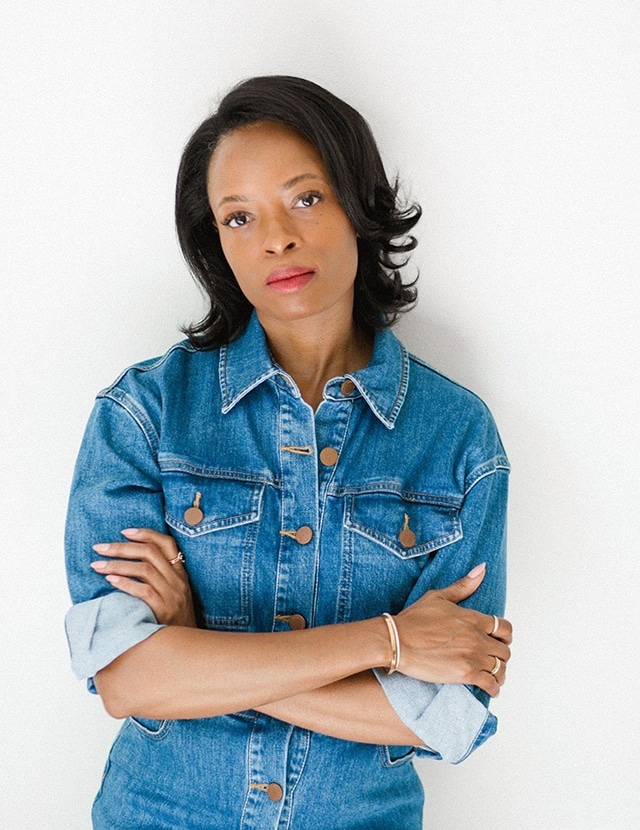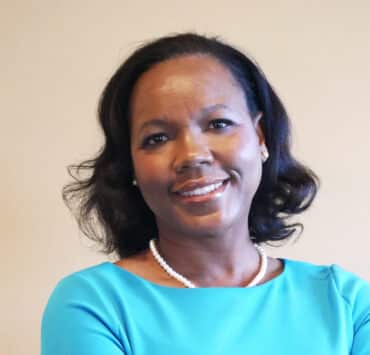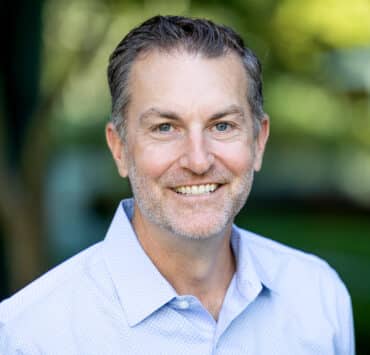Corbrina Rollins has always had a knack for bringing people together. Throughout her life, the self-described social introvert often found ways to help others form connections.
“I have loved helping to build little communities and continuing to expand them, whether that’s through hosting dinner parties, backyard barbeques, or a block party,” she says. “It’s been important for me to help people feel like they have a home and a safe space.”
That value informs her role at Workhuman, a company that provides employee recognition software to help business leaders leverage human connections to drive business results. There, she works with HR leaders from companies like Accenture and LinkedIn to create a sense of community and belonging among diverse employees. When she first sits down with clients, she gets an understanding of their goals and their current belonging strategies and then evaluates ways she can help them push the ball forward.
Rollins is a firm believer in the power of recognition and has seen the ways strategic recognition programs can help amplify the voices of groups that aren’t always heard. These programs not only help bring visibility to the work employees are doing but also can help employees feel like they can bring “their whole selves” to work, she says.

“For example, at Workhuman we understand the importance of celebrating those key moments in life, like birthdays, birth of a new child, buying a house,” Rollins explains. “I remember getting two puppies and having colleagues from Dublin commenting on that and celebrating that. Even though I never met them in person, it makes me feel like they don’t just see the Corbrina that’s putting presentations together. Just being able to walk hand-in-hand with people through those milestones really brings people together.”
Some might think these are just small, feel-good wins but data suggest otherwise. According to Deloitte, recognition in the workplace is associated with increased levels of engagement and lower rates of turnover. It also can make work environments more positive and help everyone be more productive. Those are some of the things Rollins points out to her clients that struggle to get buy-in from leadership on pushing recognition initiatives.
“We have analysts and PhDs putting numbers behind what it means to feel psychologically safe and the impact it has,” she explains. “In organizations that don’t make the investment, we see people going out the door but in places that acknowledge the direct impact recognition has, we see key business outcomes going up.”
Rollins and her team also lean on data and analytics to uncover the progress companies are making on their diversity, equity, and inclusion initiatives, revealing how often women and people of color are recognized compared to other groups. Armed with those numbers from Workhuman iQ, the company’s research and analytics arm, the team can help organizations sus out unconscious bias that might exist while creating opportunities to raise awareness, educate employees, and hone strategy using an artificial intelligence-driven coaching tool, Inclusion Advisor.
“Recognition has a profound impact across an organization,” she says. “It’s not just a people strategy. The beauty of it is that while core business outcomes are always important to our HR and talent people, they partner across with their head of sales, their head of marketing, and others who are also affected by it.”
“Recognition has an impact across an organization. It’s not just a people strategy.”
Corbrina Rollins
Rollins grew up feeling seen. She was raised in Schaumburg, Illinois, with family on the South side of Chicago. In both places, she was surrounded by people who loved her.
“I had aunts and uncles all within a few miles of each other, so I could walk from one person’s house to the next,” she says. “Just from an early age, we stayed close to one another. My cousins are like my sisters, and there was this sense of belonging that started to become a bit deeper than family and expanded out to friends.”
Today, she continues to maintain deep friendships with people she has known since she was twelve years old and those who continue to live close to her California neighborhood. Inevitably, her deep value of community spilled into her professional life.
“It’s spilled over in the sense of shared career stories, paths, and network building,” she says. “We continue to grow together, learn from one another, and open up doors for one another.”


